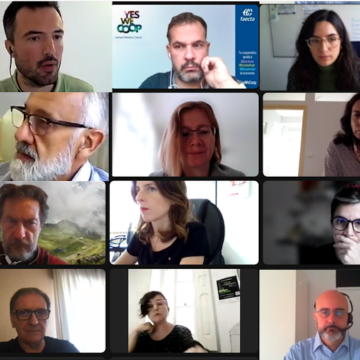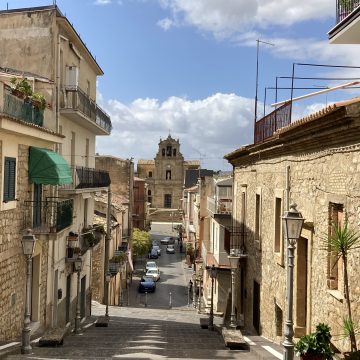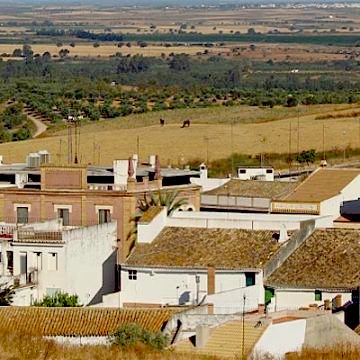A digital toolkit for small communities
 A digital toolkit created on the basis of the joint work carried out within GRAPE, with the aim of providing guidelines and tools to all those small communities interested in developing participatory Local Action Plans for environmental, social and digital transition and to strengthen territorial resilience. The tool was developed by REVES, the project’s European partner network.
A digital toolkit created on the basis of the joint work carried out within GRAPE, with the aim of providing guidelines and tools to all those small communities interested in developing participatory Local Action Plans for environmental, social and digital transition and to strengthen territorial resilience. The tool was developed by REVES, the project’s European partner network.
The toolkit, included in a special section of the REVES website (https://grape.revesnetwork.eu), draws on the experience of these 18 months of activities, accompanies local communities step by step in the process and defines a clear reference framework to proceed with the design.
«Rural areas possess, among other things, an enormous wealth of uncodified experience. The gap to be bridged is therefore not one of knowledge but of skills», stressed Luigi Martignetti, Secretary General of REVES, during the Final Conference of GRAPE. This is also why the toolkit is a central element of the project: supporting the realisation of participatory Local Action Plans that put knowledge to good use and lead to the development or refinement of skills for a progressive strengthening, under the banner of sustainability, of the growth of small communities in an integrated and participatory manner.
The main and natural interlocutor for planning is the local authority as it has the task of implementing the Plan itself by transforming it into concrete policies. However, the local social economy organisations, civil society and the various social partners play a fundamental role, since every planned initiative envisages their involvement, as is the logic of the project that has just ended.
The tool provides a general and flexible framework that can be adapted to local specificities. It consists of a series of main blocks relating to specific tasks, each of which in turn has sub-tasks to be completed and reported on by users. «We can define it as a logbook: by accessing reserved area, one can collect and organise neatly all the material useful for drafting the Plan», explained Martignetti. «The starting point is to look around in order to understand where to begin, only in this way it is possible to elaborate a vision consistent with the needs of the territory. The next step is to involve the entire local community, which is an indispensable element in arriving at a consolidated vision that the Action Plan will specify so that it can be implemented in practice».
This is certainly a long and complicated process, but one that now has concrete expertise at its disposal, thanks to GRAPE.
- Discover the digital toolkit: https://grape.revesnetwork.eu
This document reflects the views only of the Author and the GRAPE Consortium. The Commission cannot be held responsible for any use wich may be made of the information contained therein.








